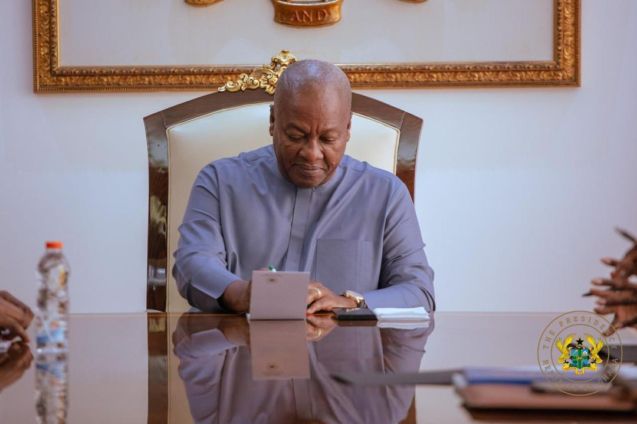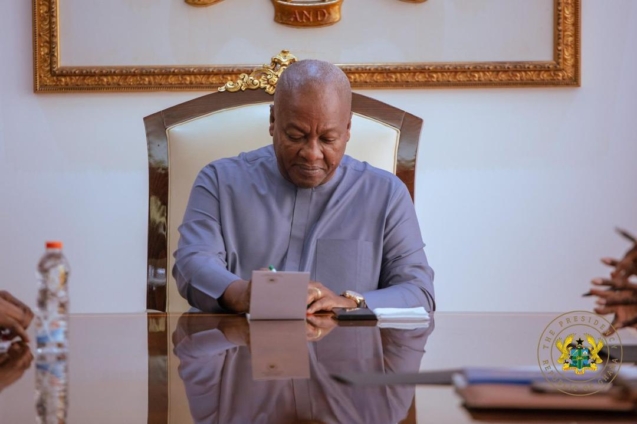
President John Dramani Mahama has officially signed into law a series of amended bills that abolish the Electronic Transfer Levy (E-Levy), betting tax, emissions tax, and other burdensome levies.
This major move delivers on a key campaign promise aimed at easing the financial strain on Ghanaians and stimulating economic growth.
The signing, which took place in the president’s office, marks a significant step in his administration’s efforts to reduce excessive taxation on individuals and businesses.
The removal of these taxes, a core commitment in the National Democratic Congress (NDC) manifesto, is designed to lower the cost of living and create a more favourable environment for business growth.
On March 26, Parliament passed the bill repealing the controversial E-Levy and betting tax, which had been widely criticised since their introduction in 2022 by the previous New Patriotic Party (NPP) administration.
The E-Levy, specifically, imposed a 1% tax on electronic transactions such as mobile money, bank transfers, and online payments.
The repeal has been met with widespread approval from the public, especially among those who argued that the E-Levy disproportionately impacted low-income earners and the unbanked.
The tax had sparked protests and criticism, with many seeing it as a barrier to financial inclusion.
By abolishing these taxes, President Mahama’s administration is signalling a commitment to creating a more business-friendly environment and relieving the financial burden on Ghanaians.
This move is expected to increase liquidity, reduce transaction costs, and support the growth of digital financial services—ultimately fostering economic stability and expansion.
President Mahama has reiterated his administration’s focus on policies that promote financial stability, attract investment, and drive long-term prosperity.
He assured the public that further initiatives would be introduced to strengthen the economy and improve the livelihoods of all Ghanaians.






